You can listen to this article at AntiCapitalist Radio
We need to get rid of capitalism; this is the central point. It is a deeply destructive economic model based on alienation, exploitation, and enriching a tiny minority at the expense of the majority. This is not to mention its devastation of the environment, which looks terminal, and prioritising shareholder value at the expense of future survival. Some say capitalism is broken because it doesn’t provide for everyone – this is wrong. Capitalism is functioning exactly as intended. Even the small joys we have in our own lives only exist because someone, somewhere, is making a profit out of it.
Getting rid of this system isn’t easy, though. It won’t collapse of its own accord – not into something better anyway. It has a massive army of people who help make the system function everyday, from bureaucrats, to journalists, to judges, to literal armies. The system is entrenched and fights for its survival, even as it is destroying the basis of life on the planet.
This means we must take action to fight for a world worth living in for us and future generations.
One of the biggest decisions a human being can make about their lives is to become politically active. To move from being just a private individual who has opinions and sometimes votes, to being someone who wants to actively try to make the world a better place, is extraordinary. It is a decision to not just care about yourself, but to work to change the way our society works for millions – even billions – of people. To want to do that is a very powerful thing.
The task that then falls to political activists – of overcoming capitalism and replacing it with an ecosocialist society – is enormous. This is why we need organisation. As the Black US revolutionary Malcolm X said, “We are not outnumbered. We are out-organised.” We must build a collective organisation, not just around particular campaign issues, but a basis to overthrow capitalism as an entire global system.
Naomi Klein powerfully makes this case in her 2014 book This Changes Everything: “I have, in the past, strongly defended the right of young movements to their amorphous structures— which means rejecting identifiable leadership or eschewing programmatic demands. And there is no question that old political habits and structures must be reinvented to reflect the new realities, as well as past failures. But… as many are coming to realise, the fetish for structurelessness, the rebellion against any kind of institutionalisation, is not a luxury today’s transformative movements can afford…. In practice, that means that, despite endless griping, tweeting, flashmobbing, and occupying, we collectively lack many of the tools that built and sustained transformative movements of the past.”
Building an organisation is one of the tools that can build and sustain transformative movements.
ACR is a revolutionary socialist organisation—what does that mean? We want to build a mass movement that can overthrow capitalism by removing the capitalist class from power by seizing their corporations and wealth. The goal is to establish a new kind of society based on democratic social ownership of the economy. This is a political act. It cannot just be left to social movements or spontaneous action; it requires strategy and relentless work to make big changes happen.
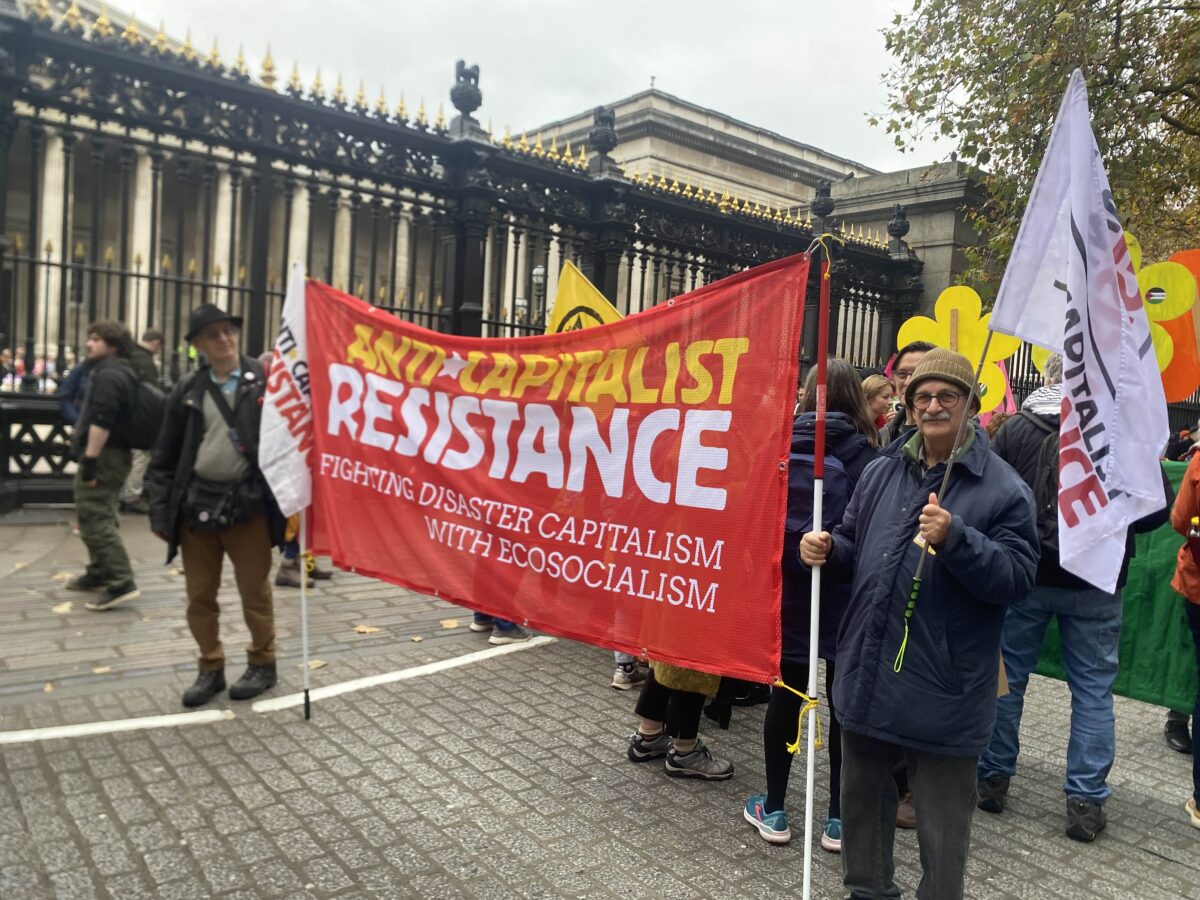
We are revolutionary because we do not believe that the capitalist class will simply give up power because they lost a vote. Whenever their power is threatened, the capitalist class and their politicians deploy the police and use the judiciary and the courts to imprison people. We cannot undo this entire economic, social and political system just through a general election to parliament.
We are also revolutionary because the scale of the climate crisis over the next few years is going to see massive transformations in the environment which will have a direct impact on human (and animal) life around the globe. If we want to avert the worst of the crisis, we need to revolutionise the very fabric of our society.
Why being in an organisation is helpful
These are the basic arguments for why we need a socialist organisation and why you should join us.
Organisational strength
Being in a socialist group means building a collective where our individual talents and energies can be focused and amplified.
Learning from our movements history
A socialist group is also an important way of ensuring that the lessons of past struggles are not lost, so that we can build on successes, and avoid defeats. ACR has comrades who were involved in the anti-Vietnam war movement in the 1970s and younger members involved in the trans-rights politics of the last few years. A socialist organisation allows us to come together and connect social movement campaigns with the wider working class movement.
The battle of ideas
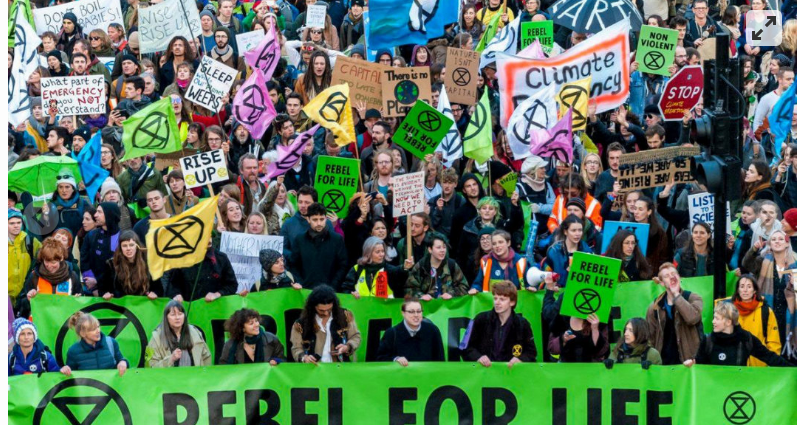
The capitalists and their politicians aggressively promote their ideology (even having the audacity to claim that capitalism is ‘common sense’!) through political parties, the media, etc. Only through serious organisation can we challenge these ideas on a sustained basis. Capitalism does not just exist because of lies or propaganda by the capitalist class; it appears real precisely because we are all humans embedded in market economics; it structures our lives and, therefore, outlooks. Socialism requires explaining why this is not the best way for us to live as humans and to outline how society could be better.
Educate and train activists
We are better fighters for human freedom if we can develop our skills, whether that is in writing articles, giving speeches, running campaigns, organising protests, or whatever else needs doing. We also need to be able to win arguments with people, challenge reactionary ideas, and give hope to people who have fallen into pessimism or cynicism.
Building a healthy organisation
The history of the struggle for socialism is almost as long as the history of capitalism itself. During this time, the working class and socialist left have built many organisations, including trade unions, co-operatives, educational societies, and socialist parties of different sizes and strengths.
There is a lot we can learn from history. But certain things we clearly want to avoid to build a healthy organisation as part of a wider movement.
The first is that we want to avoid building a political sect. A sect isn’t just a small group; it is an approach to organising that privileges the group above all else. It means focussing only on building your organisation and not the wider movement. While we want to recruit and grow ACR, this can only happen in relation to the wider workers’ and social movements.
We also don’t want leadership cults where one guru dominates everything based on their whims. One problem with the Russian Revolution was how people turned Lenin (after he was dead) into an infallible expert who never made a mistake, which allowed Stalin to emerge as the unrivaled leader. This was part of how things broke down after the genuinely revolutionary early years following 1917. We want collective leadership based on democratic participation, where our individual strengths come together, and we know no one person is a perfect leader beyond reproach.
This is why we are a democratic organisation. We value people being active, taking an interest, having opinions, attending internal meetings and airing views. People can challenge leadership if they think mistakes are being made. No one is expelled simply for having a different political view (unless it is dangerous to others, like serious misogyny or racism). We think socialists are at their best when they are part of a lively internal culture and debates within the group.
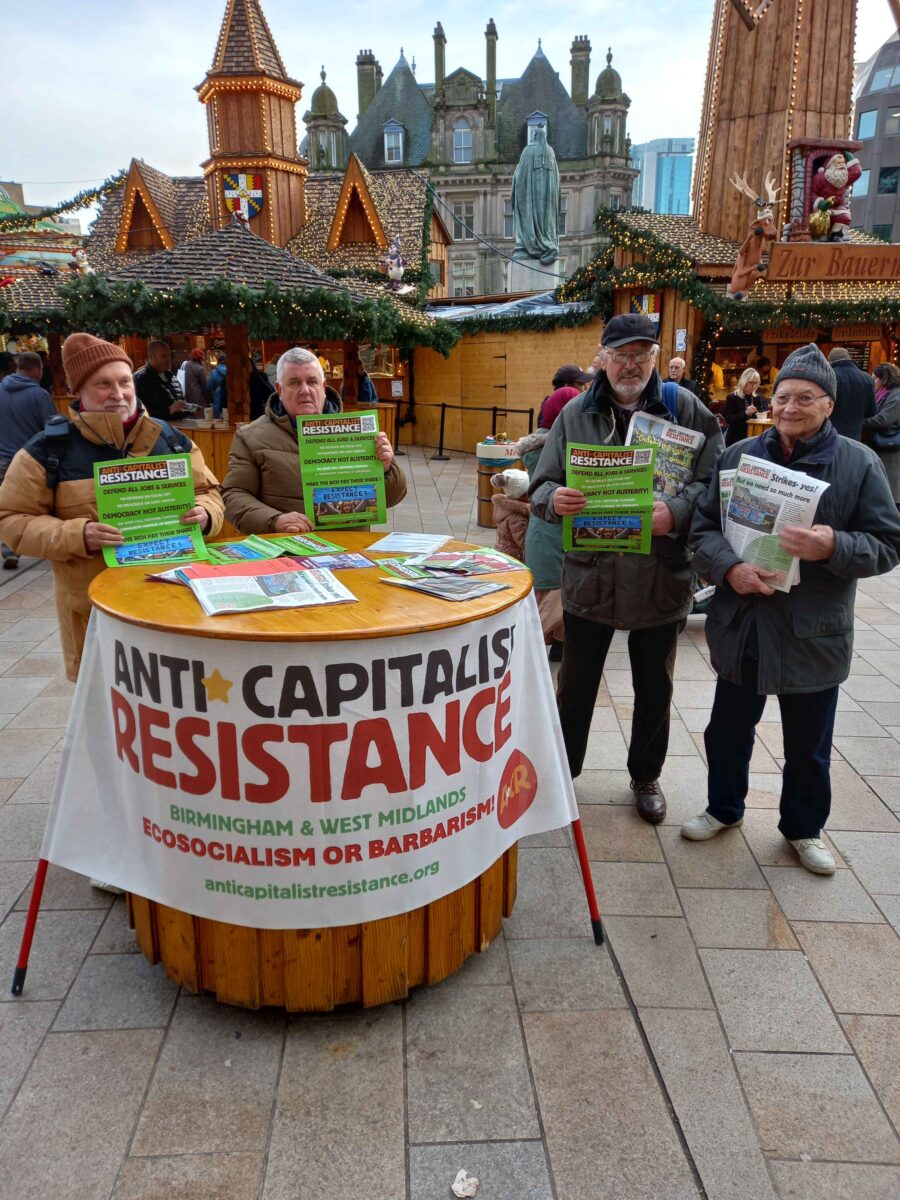
This approach is crucial because sometimes socialist groups get it wrong. New things are happening constantly, and new events can be responded to incorrectly. There were big debates in the 1960s, for instance, over the ‘new left’, which was less focused on trade unionism and more on opposing the Vietnam War, promoting women’s rights or opposing racism.
Some groups were sceptical of these movements, judging them as middle-class and not properly socialist. Others joined them with both feet, sometimes collapsing into the movements and losing their identities. A healthy political organisation with principles, but that can relate to new situations, is what we need.
The way we approach political disagreements is very important. There have been too many damaging divisions on the left (it’s a common joke about how often socialist groups have splits like the People’s Liberation Front of Judea from Monty Python) so we want to focus on collaborative working where we can agree on general points.
This means we have agreed positions as an organisation adopted at conferences or members’ meetings (aggregates), and the elected leadership has a mandate to adopt political positions when needed. But the leadership’s position can be challenged and overturned at a wider membership meeting, and crucially, just because ACR has a particular line on certain events doesn’t mean every member has to repeat them in public.
We don’t want to elevate tactical questions to matters of principle. Whether you vote for a mainstream trade union-backed party like Labour is tactical; there’s no point splitting over it. However, supporting working class struggles and resistance to social oppression are matters of principle for us.
We certainly encourage members to act collectively and to have a degree of loyalty to the organisation’s principles (otherwise why be a member?), but disagreements over tactical issues or slogans should not lead to heresy hunting or relentless internal debates.
Why not just join Labour or the Greens?
There are ACR members and supporters active in trade unions and larger political parties like Labour and the Greens, but as an ecosocialist organisation, we do not believe that a primary focus on parliament is the way to get the kind of change we want.
Labour is a mass party with many trade unions affiliated, but it is not a socialist party. It is integrated into the management of capitalism and maintaining the status quo. That doesn’t mean Labour won’t occasionally implement good reforms, like the welfare state and NHS. But you cannot reform capitalism into something else; the capitalist class would never allow it. And we saw how Labour treated Corbyn and the left between 2015-2019.
The Green Party can appear as a credible left alternative, and they usually have a more radical manifesto than Labour. But because the Greens share the same political strategy as Labour – to win parliamentary elections – they are subject to similar pressures to conform and ultimately facilitate the needs of capital.
When the Greens were in power in Ireland and Germany, they quickly implemented policies they had previously campaigned against. In Germany in the early 2000s, their government with the Social Democrats called the police on environmental activists trying to blockade nuclear power stations. On a smaller scale, when the Green Party ran Brighton Council after 2010, they implemented austerity measures just like any other council.
As ecosocialists, we are critical of so-called democracy under capitalism for several reasons. First, it isn’t real democracy. The economy is in private hands and there is no democratic say in workplaces, even though work takes up most of our lives and is central to our society. Capitalism is built on the exploitation of labour and nature, and parliamentary reforms can ameliorate that but won’t end it. Important parts of the state are also not subject to election or democratic oversight – the police, army, secret service, civil service, and judiciary, for instance. These parts of the state defend the status quo.
There is also an issue with electoralism. Electoral democracy replicates passive political relations of experts or “politicians” doing things for you. But it is also based on the divisions under capitalism between the exploitation of labour (both paid and unpaid) and concentration of power by the ruling class into a police-military-bureaucracy that sustains their rule.
At the same time, it allows reforms to maintain capitalist hegemony and sustain it as a system. Capital plus electoral parliamentary democracy creates capitalism as a system, the tyranny of capital with the veneer of democratic oversight. This reality creates a culture of depoliticisation and dissatisfaction (nothing changes/they’re all the same).
Our understanding of radical transformation comes from people building struggles, empowering themselves collectively, and challenging power directly, using new, genuinely democratic, accountable, and responsive institutions. Taking action collectively in your own interests leads to radical challenges to existing power structures; people who were quiet become loud, the oppressed fight back, the exploited band together. When faced with this, politicians try to channel discontent into votes for themselves (e.g., the Democrats in the USA or Labour in Britain), but this is about giving themselves more power at the expense of the radical fight from below.
Working in broader movements
Bread and butter activity for socialists is working in social movements and community campaigns. It is important to enthusiastically throw yourself into movements where growing numbers of people are fighting for their liberation, whether it is workers fighting for higher wages to offset inflation or Black people protesting police violence or trans* people demanding adequate healthcare or people opposing genocide in Palestine.
These kinds of initiatives are sometimes called United Fronts, as in we present a united front to the bosses and the reactionaries, movements are made up of separate organisations and tendencies but they are united towards a common goal.
In movements like these, it is important not to fall into two traps. The first is coming across as sectarian because you have a my-way-or-the-highway approach where others already need to have a fully developed out socialist strategy for it to be principled to engage with them. This is a recipe for isolation and constantly counterposing socialism to whatever is actually going on – you end up being out of touch.
The other danger is simply politically collapsing into movements and struggles and offering nothing much to them. This usually involves following along behind the existing leaderships or most active people and refusing to critically engage or offer ideas for how to win. If movements spontaneously came up with their own winning policies and tactics every time then it would make us wonder what the point was in being in a socialist organisation in the first place? This is sometimes called liquidationism – you end up liquidating your own voice and perspective.

We must be able to work across the left on the things that matter without dissolving ourselves into a broad movement where we lose sight of what we are trying to specifically contribute. Navigating between these two one sided approaches is not always easy, for most people it is something that they learn over time. As ecosocialists we believe we have important things to contribute and useful historical lessons of victories and defeats for existing struggles, but these have to be part of a dialogue with the movement. We should be one step ahead of the movement, but perhaps only one step!
A practical example
Let’s take an example of the mass pay strikes in 2022-3 over inflation. We start from the simple question – why are working people being made to pay the cost of bosses putting up prices? So turn this crisis into a chance to argue for positive changes. This is translated into demands and slogans. For instance wages should be linked to inflation – this is an important demand. What about price caps on essential goods? Introducing rent controls? All of these are examples where we counterpose a socialist response to inflation with what the government is doing.
Politics only exists within the context of people fighting for them. So we also have to consider the movement that is being built. Lots of unions organised strike days, some unions won some concessions, some didn’t win anything much. Very few of the unions actually won inflation busting pay increases. What is a good intervention into such a movement? There are the basics such as attending picket lines to show solidarity and trying to get your own workplace or union to strike over pay. But we can also argue for the unions to coordinate their strike days to make them more powerful. Also one day strikes are limited, why not try and escalate to two or three day strikes?
What about calling mass assemblies with the local community to build a broad movement. This culd include not just workers impacted by inflation but students, the unemployed, people on disability payments, pensioners and so on. Can we turn a trade union issue into a class issue that builds the broadest possible movement?
This example is just one of many but you can apply the approach to any issue, racism, climate change, housing, women’s rights and transliberation and so on.
What is unique about ACR?
There are so many different socialist groups out there, so what is different about ACR? It might be worth saying here that in some ways, we don’t want to focus on the differences because, in some ways, we do what any other left group worth their salt is doing: supporting workers’ strikes over wages, building solidarity with Palestine, writing political analysis and so on. For us, basic things need to be done because they are tried and tested ways of mobilising people in a fight for a better world. And despite any political differences that might exist we are adamant that unity in struggle is crucial – working people and the oppressed hate petty sectarian divisions when they are faced with a serious attack by those in power.
Having said that, there is a reason why we are building ACR and not in another group – though we are very much in favour of broader left realignment and unity wherever possible. We emerged as a fusion of two organisations, Socialist Resistance and Mutiny in 2021, which also involved other activists across the socialist left.
The basis of this unity was on three key issues: ecosocialism to fight environmental collapse, a concern about the creeping fascism of mainstream politics in the form of people like Trump in the USA, Bolsonaro in Brazil and others, and a view that Brexit had not been a working-class triumph against EU neoliberalism but was a movement rooted in reactionary nationalist concerns about immigration and border control led by anti working class figures like Nigel Farage. What was needed was internationalism not a left nationalism.
On these three issues, our views have not changed though we would be clear that your position on Brexit in 2016 is of far less importance than whether you want to oppose the racist attacks on immigrants and refugees happening in the wake of Brexit. Again, this is because we must build the broadest possible unity in struggle. This is why we attend Stand Up To Racism protests even though they are organised by the SWP, who were pro-Brexit.
The Russian invasion of Ukraine has been a very divisive event on the British left. Some welcomed it as a blow to western imperialism, which, from our perspective, is entirely wrong. We oppose Western imperialism and its institutions like NATO, but we also oppose Russian imperialism. The invasion of Ukraine was – even in Putin’s own words – to recolonise Ukraine as part of a vision to create a greater Russia before Ukraine split off in the early 1990s. The colonisation of one country by another is wrong, and no one on the left should support it, even if it is resolving borders created by colonialism. We have to advocate for revolutionary ecosocialist politics which break out of logic of nationalism and colonialism and forge a new kind of radical project.
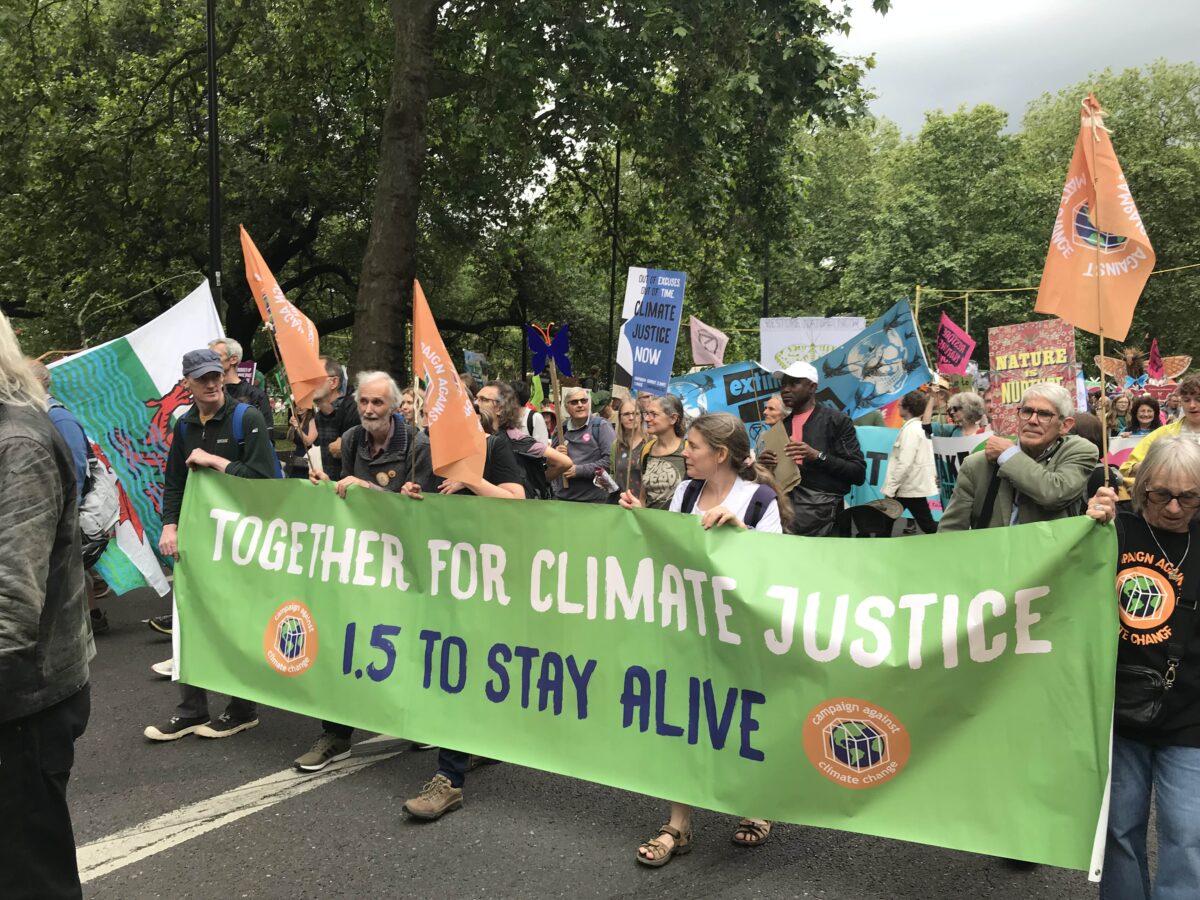
Within our own ranks, there were debates about which was the best slogan to raise, but we have always been clear that Ukraine has a right to exist and, therefore, defend itself from invasion (just as Iraq and Afghanistan had a right to protect themselves from invasion by the US and the UK in the early 2000s). We have built connections with Ukrainian socialists and trade unions, which have been very important because they are fighting to defend their country from invasion by a foreign power that has historically oppressed them.
We have also been proud of our work around ecosocialism, taking the lead in organising a 150-strong conference in December 2023 and another in December 2024 and building a network with others to forge an ecosocialist movement in this country and beyond. We are putting effort into developing our politics, arguments and strategy around this issue because, for us, the environment is not just another issue among many; it is the basis of life on the planet, so overthrowing capitalism to prevent runaway global warming or unstoppable climate degradation is central. This is an example of where we are – even with our limited resources – focussing on movement-building alongside others.
Building a fight back against the attacks on trans* people in the UK in the wake of the Cass Review is also something that we have put our focus on. Trans* people are some of the most oppressed in our society, with blatant bigotry against them from mainstream politicians and the mass media. The fight over the right to exist as a trans* person goes to the very core of being free to be who you want to be in the world, and it is central to any socialist idea of liberation that people be allowed to live the lives they want to live. This is true of sexuality or gender or anything else. However, some groups like the Communist Party of Britain have a shockingly bad transphobic view on this issue, and we reject it entirely.
Self organisation for socially oppressed people
A core part of our organising philosophy is that people from socially oppressed groups should be able to meet separately to discuss and organise as they see fit. This includes women, non-binary, queer, Black people (meaning anyone who isn’t white) and disabled people.
This isn’t about separatism, we are all members of ACR and act collectively, but it is about ensuring that voices from oppressed groups can be heard and their particular concerns can be listened to. This is because in our society, rooted as it is in sexism, nationalism and racism, as well as abelist ideology, certain people can benefit from relative advantages in terms of confidence to speak and be taken seriously, but also the default assumption or perspective is often around white, straight men.
This is still the case even after decades of social movements and struggles to shift it, though there have been significant victories as well to make sure that specific concerns for socially oppressed groups are heard.
We have to make sure that our own organisation as much as possible reflects the wider working class – which is very diverse and increasingly so. Self organisation is a way to address that.
We also advocate for self organisations in the trade unions and Labour Party because it is vital that people who are marginalised by capitalism get to be heard and can advocate for their own interests.
Building a mass revolutionary organisation
To change the world we need as many active, organised revolutionaries as we can get. We have to build a mass organisation that can play a central role in replacing capitalism with ecosocialism. This cannot be done by scattered individuals, by a focus on lifestyle choices or going on the occasional demonstration.
While we are actively growing our organisation, we cannot become a mass revolutionary force by recruiting a few people here and there. Our What We Stand For explains that “Anti-Capitalist Resistance will encourage convergence with other revolutionary Marxist activists and organisations.” We favour a broader realignment of the left, but this cannot be done on an unprincipled basis, where you ignore genuine political differences. There has to be a large degree of political unity over your programme for action and how you approach political questions. Nevertheless, the reality is that any organisation that gets larger inevitably moves towards a more heterogeneous, multi-tendency organisation.
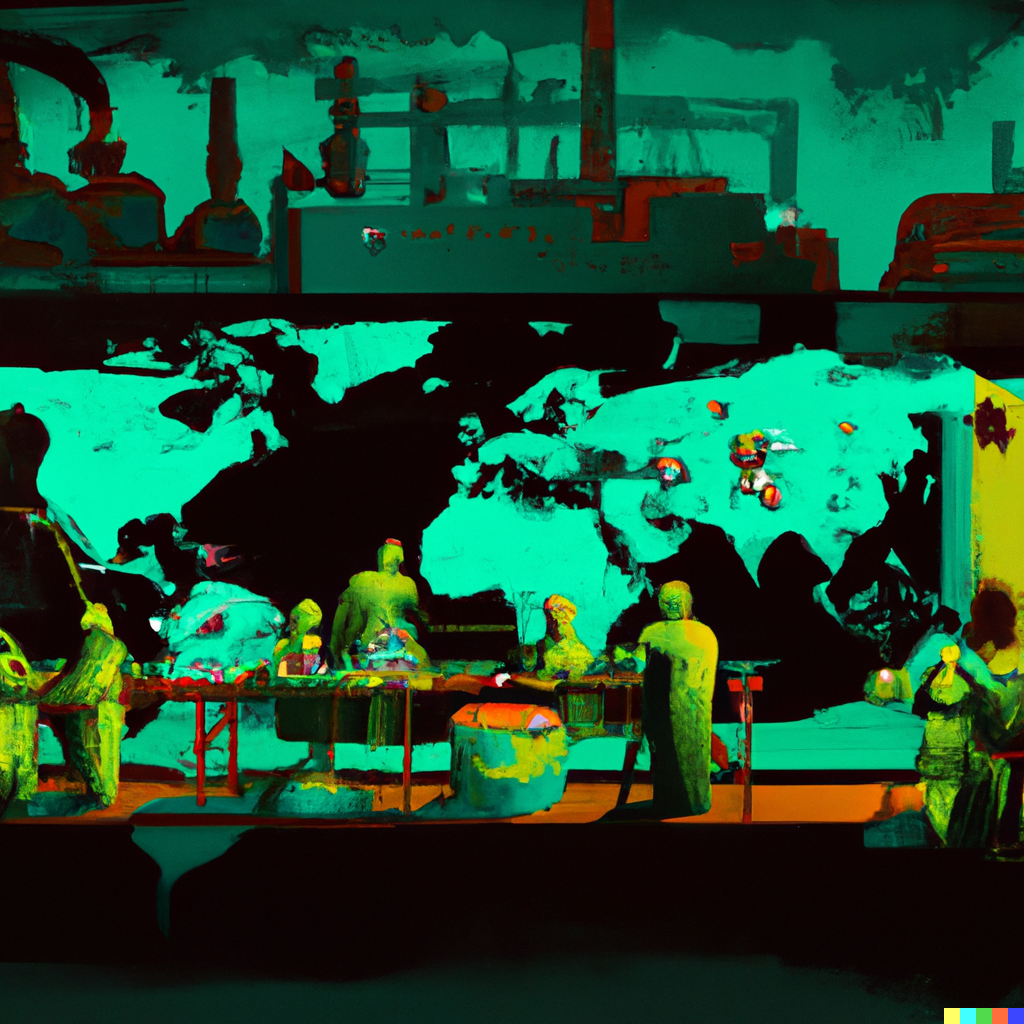
At the moment the socialist left is scattered with groups of various sizes here and there, some are in the 10s, some are a few thousand. There are real differences about why some of these groups have emerged from splits and divisions, but we have to be serious that we need a very significant revolutionary organisation to have any hope of overthrowing capitalism and replacing it with ecosocialism.
Any mass revolutionary organisation will be made from splits in larger organisations and fusions as well as new people joining who might never have been involved in politics before.
But we are clear we cannot simply ‘unite the left’ where there are very real political differences on important issues. Many of these disagreements cannot be resolved by simply talking it out or debating, they are based on quite radically different assumptions about politics. It requires working together in mass movements, building trust and seeing the benefit of more united action in practice.
We are clear however that globally, all the contradictions of capitalism, imperialism, neoliberalism and austerity are culminating – most clearly in the climate crisis. The growth of the far right is not an accident, it is a symptom of the wider problem of a society based on division, exploitation, competition and hierarchy. We have to work urgently to build movements and organisations that can make a difference. This is not a hobby or something that we just do because it is interesting, it is a pressing concern for billions of people. Time is against us which is why these ideas matter and they need to be taken seriously.
If you would like to join ACR then you can here. If you want to contact us to discuss these ideas more then email us at info@anticapitalistresistance.org.
Art Book Review Books Capitalism China Climate Emergency Conservative Government COVID-19 EcoSocialism Elections Europe Fascism Film Film Review France Gaza Imperialism Israel Italy Keir Starmer Labour Party Marxism Marxist Theory Palestine pandemic Protest Russia Solidarity Statement Trade Unionism Ukraine United States of America War

